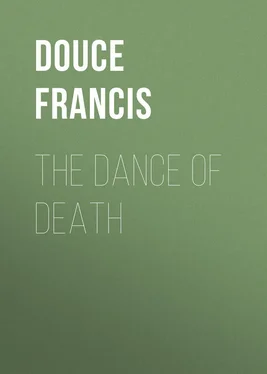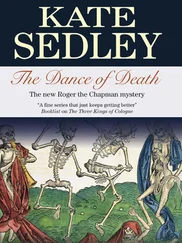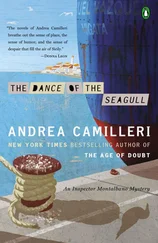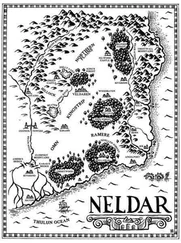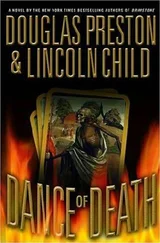Francis Douce - The Dance of Death
Здесь есть возможность читать онлайн «Francis Douce - The Dance of Death» — ознакомительный отрывок электронной книги совершенно бесплатно, а после прочтения отрывка купить полную версию. В некоторых случаях можно слушать аудио, скачать через торрент в формате fb2 и присутствует краткое содержание. Жанр: foreign_antique, foreign_prose, на английском языке. Описание произведения, (предисловие) а так же отзывы посетителей доступны на портале библиотеки ЛибКат.
- Название:The Dance of Death
- Автор:
- Жанр:
- Год:неизвестен
- ISBN:нет данных
- Рейтинг книги:5 / 5. Голосов: 1
-
Избранное:Добавить в избранное
- Отзывы:
-
Ваша оценка:
- 100
- 1
- 2
- 3
- 4
- 5
The Dance of Death: краткое содержание, описание и аннотация
Предлагаем к чтению аннотацию, описание, краткое содержание или предисловие (зависит от того, что написал сам автор книги «The Dance of Death»). Если вы не нашли необходимую информацию о книге — напишите в комментариях, мы постараемся отыскать её.
The Dance of Death — читать онлайн ознакомительный отрывок
Ниже представлен текст книги, разбитый по страницам. Система сохранения места последней прочитанной страницы, позволяет с удобством читать онлайн бесплатно книгу «The Dance of Death», без необходимости каждый раз заново искать на чём Вы остановились. Поставьте закладку, и сможете в любой момент перейти на страницу, на которой закончили чтение.
Интервал:
Закладка:
In that extremely curious work, the Manuel de Pêché, usually ascribed to Bishop Grosthead, the pious author, after much declamation against the vices of the times, has this passage: —
Karoles ne lutes ne deit nul fere,
En seint eglise ki me voil crere;
Kas en cimetere karoler,
Utrage est grant u lutter. 12 12 Bibl. Reg. 20 B. xiv. and Harl. MS. 4657.
He then relates the story in the Nuremberg Chronicle, for which he quotes the book of Saint Clement. Grosthead’s work was translated about the year 1300 into English verse by Robert Mannyng, commonly called Robert de Brunne, a Gilbertine canon. His translation often differs from his original, with much amplification and occasional illustrations by himself. As the account of the Nuremberg story varies so materially, and as the scene is laid in England, it has been thought worth inserting.
Karolles wrastelynges or somour games,
Whosoever haunteth any swyche shames,
Yn cherche other yn cherche yerd,
Of sacrilage he may be aferd;
Or entyrludes or syngynge,
Or tabure bete or other pypynge;
All swyche thyng forboden es,
Whyle the prest stondeth at messe;
But for to leve in cherche for to daunce,
Y shall you telle a full grete chaunce,
And y trow the most that fel,
Ys sothe as y you telle.
And fyl thys chaunce yn thys londe,
Yn Ingland as y undyrstonde,
Yn a kynges tyme that hyght Edward,
Fyl this chaunce that was so hard.
Hyt was upon crystemesse nyzt
That twelve folys a karolle dyzt,
Yn Wodehed, as hyt were yn cuntek, 13 13 Contest.
They come to a toune men calle Cowek: 14 14 Q. Cowick in Yorkshire?
The cherche of the toune that they to come,
Ys of Seynt Magne that suffred martyrdome,
Of Seynt Bukcestre hyt ys also,
Seynt Magnes suster, that they come to;
Here names of all thus fonde y wryte,
And as y wote now shal ye wyte
Here lodesman 15 15 Leader.
that made hem glew, 16 16 Glee.
Thus ys wryte he hyzte 17 17 Called.
Gerlew;
Twey maydens were yn here coveyne,
Mayden Merswynde 18 18 A name borrowed from Merwyn, Abbess of Ramsey, temp. Reg. Edgari.
and Wybessyne;
All these came thedyr for that enchesone,} doghtyr
Of the prestes of the toune.
The prest hyzt Robert as y can ame,
Azone hyzt hys sone by name,
Hys doghter that there men wulde have,
Thus ys wryte that she hyzt Ave.
Echone consented to o wyl,
Who shuld go Ave out to tyl,
They graunted echone out to sende,
Bothe Wybessyne and Merswynde:
These women zede and tolled 19 19 Took.
her oute,
Wyth hem to karolle the cherche aboute,
Benne ordeyned here karollyng,
Gerlew endyted what they shuld syng.
Thys ys the karolle that they sunge,
As telleth the Latyn tunge,
Equitabat Bevo per sylvam frondosam,
Ducebat secum Merwyndam formosam,
Quid stamus cur non imus.
By the levede 20 20 Leafy.
wode rode Bevolyne,
Wyth hym he ledde feyre Merwyne,
Why stonde we why go we noght:
Thys ys the karolle that Grysly wroght,
Thys songe sung they yn chercheyerd,
Of foly were they nothyng aferd.
The party continued dancing and carolling all the matins time, and till the mass began; when the priest, hearing the noise, came out to the church porch, and desired them to leave off dancing, and come into the church to hear the service; but they paid him no regard whatever, and continued their dance. The priest, now extremely incensed, prayed to God in favour of St. Magnes, the patron of the church:
That swych a venjeaunce were on hem sent,
Are they out of that stede 21 21 Place.
were went,
That myzt ever ryzt so wende,
Unto that tyme twelvemonth ende.
Yn the Latyne that y fonde thore,
He seyth not twelvemonth but evermore.
The priest had no sooner finished his prayer, than the hands of the dancers were so locked together that none could separate them for a twelvemonth:
The preste yede 22 22 Went.
yn whan thys was done,
And comaunded hys sone Azone,
That shuld go swythe after Ave,
Oute of that karolle algate to have;
But al to late that wurde was sayde,
For on hem alle was the venjeaunce leyd.
Azonde wende weyl for to spede
Unto the karolle asswythe he yede;
Hys syster by the arme he hente,
And the arme fro the body wente;
Men wundred alle that there wore,
And merveyle nowe ye here more;
For seythen he had the arme yn hand,
The body yode furth karoland,
And nother body ne the arme
Bled never blode colde ne warme;
But was as drye with al the haunche,
As of a stok were ryve a braunche.
Azone carries his sister’s arm to the priest his father, and tells him the consequences of his rash curse. The priest, after much lamentation, buries the arm. The next morning it rises out of the grave; he buries it again, and again it rises. He buries it a third time, when it is cast out of the grave with considerable violence. He then carries it into the church that all might behold it. In the meantime the party continued dancing and singing, without taking any food or sleeping, “only a lepy wynke;” nor were they in the least affected by the weather. Their hair and nails ceased to grow, and their garments were neither soiled nor discoloured; but
Sunge that songge that the wo wrozt,
“Why stond we, why go we nozt.”
To see this curious and woful sight, the emperor travels from Rome, and orders his carpenters and other artificers to inclose them in a building; but this could not be done, for what was set up one day fell down on the next, and no covering could be made to protect the sinners till the time of mercy that Christ had appointed arrived; when, at the expiration of the twelvemonth, and in the very same hour in which the priest had pronounced his curse upon them, they were separated, and “in the twynklyng of an eye” ran into the church and fell down in a swoon on the pavement, where they lay three days before they were restored. On their recovery they tell the priest that he will not long survive:
For to thy long home sone shalt thou wende,
All they ryse that yche tyde,
But Ave she lay dede besyde.
Her father dies soon afterwards. The emperor causes Ave’s arm to be put into a vessel and suspended in the church as an example to the spectators. The rest of the party, although separated, travelled about, but always dancing; and as they had been inseparable before, they were now not permitted to remain together. Four of them went hopping to Rome, their clothes undergoing no change, and their hair and nails not continuing to grow:
Bruning the Bysshope of Seynt Tolous,
Wrote thys tale so merveylous;
Setthe was hys name of more renoun,
Men called him the Pope Leon;
Thys at the courte of Rome they wyte,
And yn the kronykeles hyt ys write;
Yn many stedys 23 23 Places.
beyounde the see,
More than ys yn thys cuntre:
Tharfor men seye an weyl ys trowed,
The nere the cherche the further fro God.
So fare men here by thys tale,
Some holde it but a trotevale, 24 24 A falsehood.
Yn other stedys hyt ys ful dere,
And for grete merveyle they wyl hyt here.
In the French copies the story is said to have been taken from the itinerary of St. Clement. The name of the girl who lost her arm is Marcent, and her brother’s John. 25 25 Whoever may be desirous of inspecting other authorities for the story, may consult Vincent of Beauvais Speculum Historiale, lib. xxv. cap. 10; Krantz Saxonia, lib. iv.; Trithemii Chron. Monast. Hirsaugensis; Chronicon Engelhusii ap. Leibnitz. Script. Brunsvicens. II. 1082; Chronicon. S. Ægidii, ap. Leibnitz. iii. 582; Cantipranus de apibus; & Cæsarius Heisterbach. de Miraculis; in whose works several veracious and amusing stories of other instances of divine vengeance against dancing in general may be found. The most entertaining of all the dancing stories is that of the friar and the boy, as it occurs among the popular penny histories, of which, in one edition at least, it is, undoubtedly, the very best.
Интервал:
Закладка:
Похожие книги на «The Dance of Death»
Представляем Вашему вниманию похожие книги на «The Dance of Death» списком для выбора. Мы отобрали схожую по названию и смыслу литературу в надежде предоставить читателям больше вариантов отыскать новые, интересные, ещё непрочитанные произведения.
Обсуждение, отзывы о книге «The Dance of Death» и просто собственные мнения читателей. Оставьте ваши комментарии, напишите, что Вы думаете о произведении, его смысле или главных героях. Укажите что конкретно понравилось, а что нет, и почему Вы так считаете.
